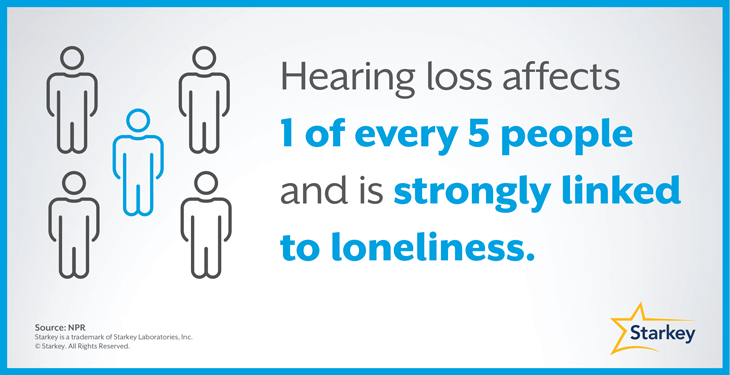Hearing loss is strongly linked to loneliness.
Loneliness has been called both an "epidemic" and "public health crisis" - and that was before COVID-19, quarantining and social distancing made things worse.
Why is loneliness a "health" crisis? Because loneliness and social isolation are associated with:
50 percent increased risk of dementia
32 percent increased risk of a stroke
29 percent increased risk of heart disease
Higher rates of depression and anxiety
Even earlier death
Many things can lead to or cause loneliness, but hearing loss, especially, has been linked to a higher risk of social isolation and loneliness. And it makes sense.
Hearing loss can make it more challenging to be social.
Humans are social creatures, and going out - whether it's running errands or going to parties, restaurants, work events or worship - can feel less enjoyable when hearing, communicating and interacting become more challenging. Imagine missing important dialogue during a film, struggling to hear the soft voices of children at your granddaughter's school play, or missing the punchline of a joke during a pub lunch with friends.
After a while, you may decide that the "cons" of socialising outweigh the "pros" and that it's easier to decline invitations, shop and transact online, and just stay at home.
Today's Hearing Fact backs up that assertion. It's from a Dutch study that found - for people under 70 - "the odds for developing severe or very severe loneliness significantly increase" as hearing gets worse.
Our advice? Be aware of hearing loss and proactively treat it before it leads to a potential "crisis". We constantly hear from people who were glad they did.
Hearing loss is a treatable cause of loneliness.
You can take the first step by taking our free online hearing test anytime. You can do the second by calling 01823 586 777 or clicking here.
With thanks to Starkey.

